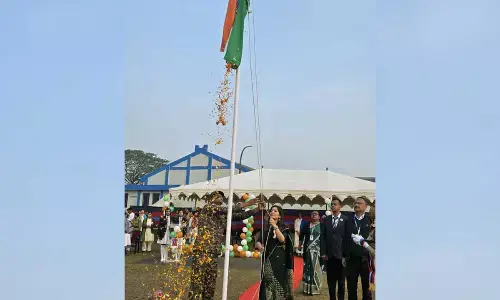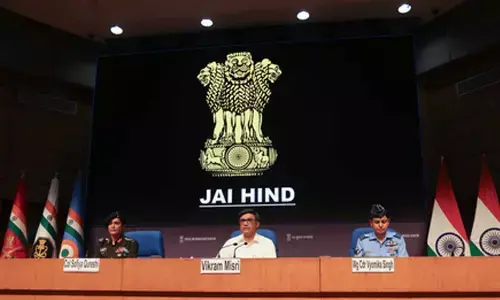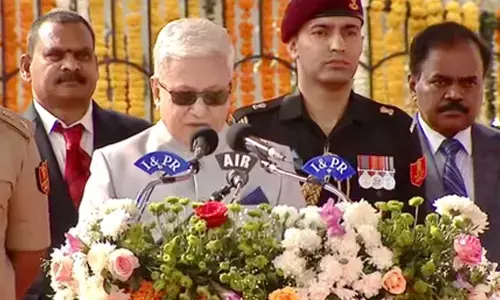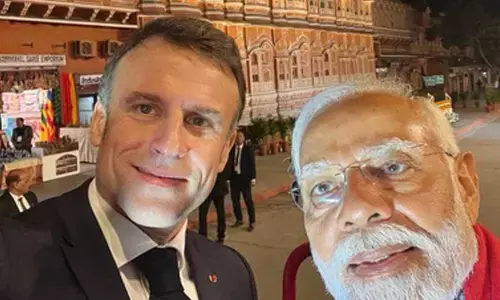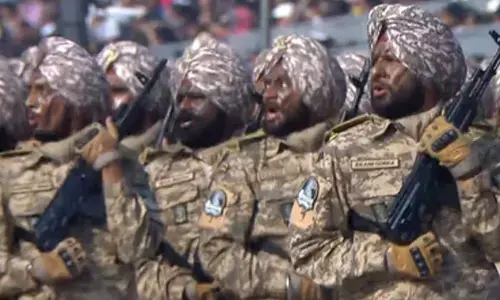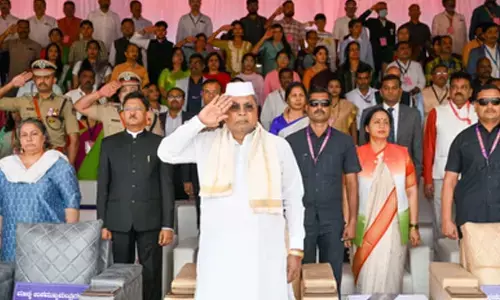ED's powers: Sibal pitches for larger SC Bench, says PMLA under FATF scanner
Share :
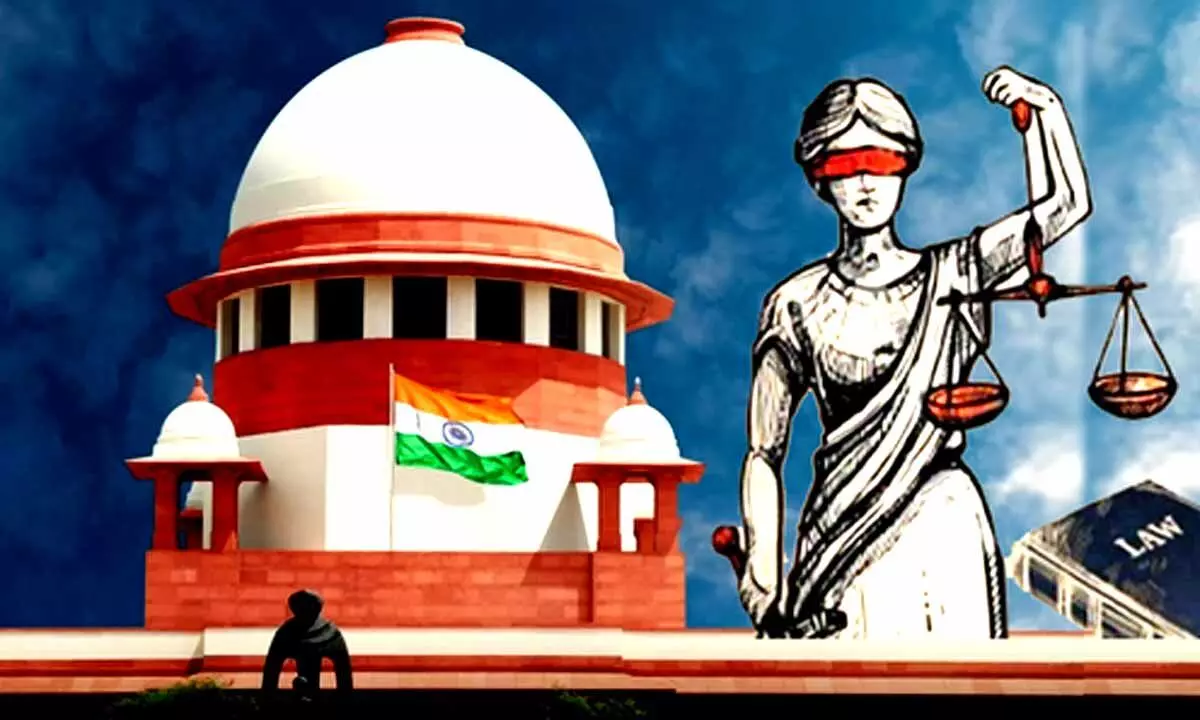
Supreme Court of India
The Supreme Court on Wednesday resumed hearing a batch of petitions seeking reconsideration of the Vijay Madanlal Choudhary judgment of 2022 that upheld stringent provisions of the Prevention of Money Laundering Act (PMLA).
New Delhi: The Supreme Court on Wednesday resumed hearing a batch of petitions seeking reconsideration of the Vijay Madanlal Choudhary judgment of 2022 that upheld stringent provisions of the Prevention of Money Laundering Act (PMLA).
The landmark order upheld the constitutional validity of several provisions of the PMLA relating to arrest, search and seizure by the Enforcement Directorate (ED).
A three-judge Bench comprising Justice Sanjay Kishan Kaul, Sanjiv Khanna and Bela M Trivedi heard the submission by Senior Advocate Kapil Sibal on behalf of the petitioners.
Sibal challenging the verdict of the apex court that upheld the provisions of PMLA, said that the money laundering act is under the Financial Action Task Force (FATF) scanner of laws being misused to target NGOs.
While making his arguments, Sibal said that the issues with the PMLA are fundamental to the 'rule of law' and thus it needs to go before a larger Constitution Bench.
"I am not here to argue whether the Vijay Madanlal judgment is right or wrong...I'm only here to convince Your Lordships that the issues are so fundamental to the rule of law that it requires a larger consideration by a Bench of five judges," Sibal said.
He made several arguments saying that the provisions of the PMLA are in violation of Article 21 and go against the principle of rule of law. The senior advocate challenged the Centre's stance that India must define money laundering widely to meet its international obligations to combat drug trafficking and organised crime, from which the proceeds of crime are generated.
According to the Centre, these obligations are contained in the Vienna and Palermo Conventions. Sibal said that the convention provides a basis for domestic law, but does not prescribe specific provisions.
"...We have reached a stage where the ED can go anywhere. It doesn't also tell you whether you are being summoned as a witness or an accused. PMLA provisions need to be tested on the anvil of our constitutional principles," he said.
Sibal then raised the issue of the PMLA not being recognised as a penal statute and the possibility of self-incrimination. He further pointed out that there is a distinction between inquiry and investigation in Section 50 itself. But the court in its judgment held that there is no distinction.
"...How can the provision be interpreted this way? There are separate definitions. I'm raising fundamental questions regarding the rule of law." Sibal said.
He further added that the Bench will have to decide whether an explanation in the statute can override the main provision under Section 3.
Sibal took the Bench through the Vijay Madanlal judgment and raised questions on the summoning powers of ED and the accused not being furnished Enforcement Case Information Report (ECIR).
"Here, the problem is, you don't arrest the man at that stage. You call him under Section 50, without telling whether he is being summoned as a witness or an accused...ECIR is not known to him. How can a person file for anticipatory bail if he does not know what he is accused of? Article 21 is right to liberty. If I don't know if I'm an accused, how will I approach the court for anticipatory bail and exercise my constitutional right?" Sibal said.
He added that the whole objective of the Act is to "prosecute and punish. If this is a penal statute, and these are police officers, very substratum of the judgment goes."
In the Vijay Madanlal case also the petitioners had argued that ED officers have been given coercive police powers (such as arrest, taking remand in custody of the arrested person, search of property and person, and seizure, etc.).
These facilitate the obtaining of a confession from a suspect. Thus, ED officers are police and the similar rules that apply to the police under Criminal Code of Procedure (CrPC) must apply to the ED.
If the court recognises PMLA as a penal statute then just like confessions made to Police officers, the confessions made to ED officers will be rendered inadmissible in court as evidence.
Then Sibal argued on Section 3 of PMLA. He raised concerns about the possession of proceeds of crime being categorised as money laundering.
"Every crime would amount to laundering of money, and in every crime, unless you show that you are not guilty, you will not get bail. That's the consequence and the enormity of the impact of this judgment," he said.
Sibal concluded his submission by reading the International conventions and argued that the PMLA's ambit has been extended to cover even those offenses that are not related to drug trafficking, organised crime and other serious crimes mandated by the international conventions.
The court will resume hearing the case on Thursday.
On October 18, the Bench had observed that SC judges are "not infallible", and thus agreed to hear a clutch of petitions seeking to reconsider a judgment of the top court upholding relevant provisions of the PMLA.
Solicitor General Tushar Mehta appearing for the Centre had raised a preliminary objection arguing that a coordinate Bench of the same strength cannot examine the matter.
However, Justice Kaul had remarked that the Bench is entitled to look into it. He further said that if the Bench concludes that some provisions need reconsideration, the matter may then be referred to a larger Bench.
Background: The Vijay Madanlal judgement was delivered in July 2022 by a three-member Bench which upheld the contitutional validy of PMLA calling it a "unique and special legislation".
In this judgment, the top court upheld the validity of certain provisions of the PMLA by holding that the same has a reasonable nexus with combating money laundering.
Previously, the Division Bench of Justice Rohinton Nariman and Justice Sanjay Kaul had struck down Section 45(1) of the PMLA for imposing two additional conditions to grant bail to money laundering accused calling them arbitrary.
However, this decision was overruled by another Bench comprising AM Khanwilkar, Dinesh Maheshwari and CT Ravikumar in the Vijay Madanlal Choudhary Judgement.
Following this, several review petitions were filed, which the three-judge Bench on Wednesday started hearing.
In August 2022, a Bench headed by the former CJI NV Ramana issued a notice and observed that two facets of the judgment prima facie needed reconsideration. First the provision that the accused need not be given a copy of the Enforcement Case Information Report (ECIR) and second was the reversal of the presumption of innocence.







